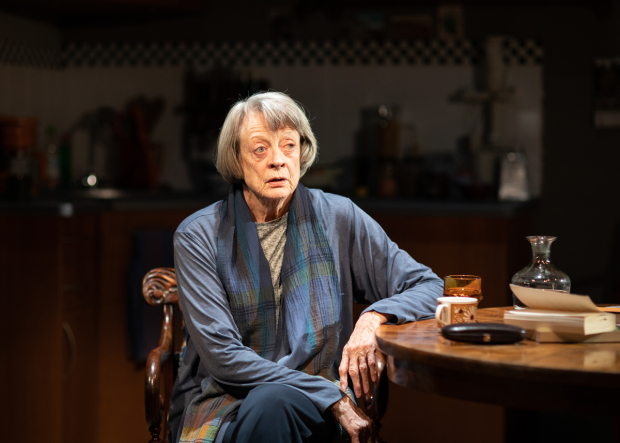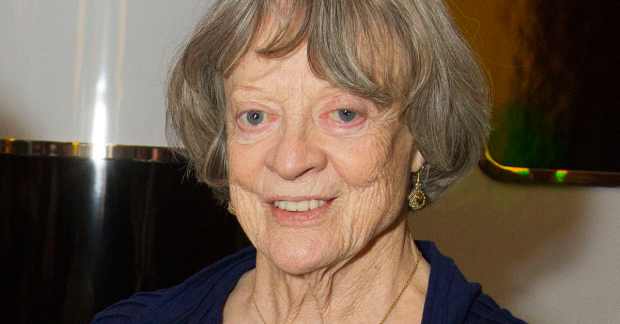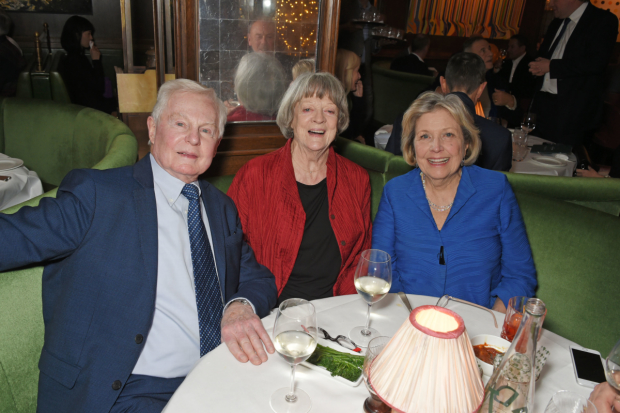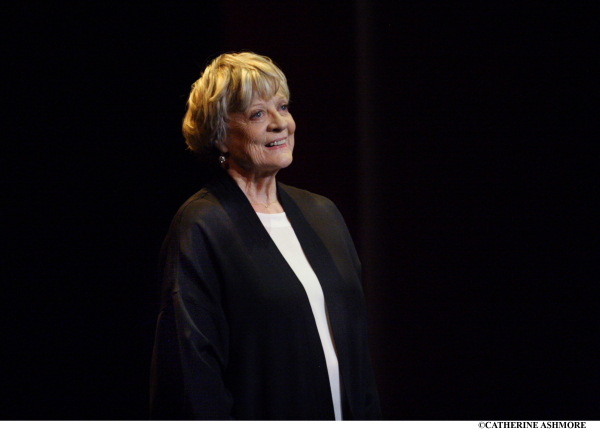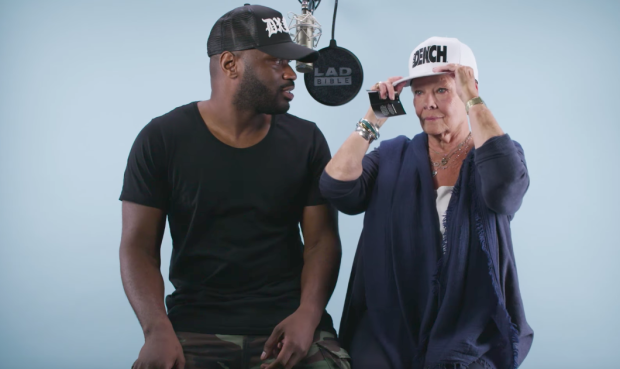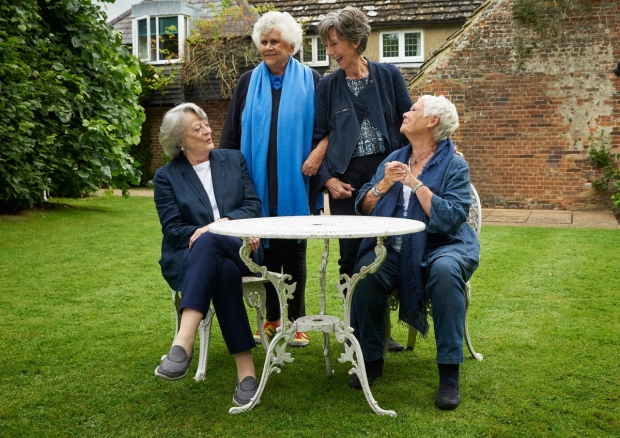Review: A German Life (Bridge Theatre)
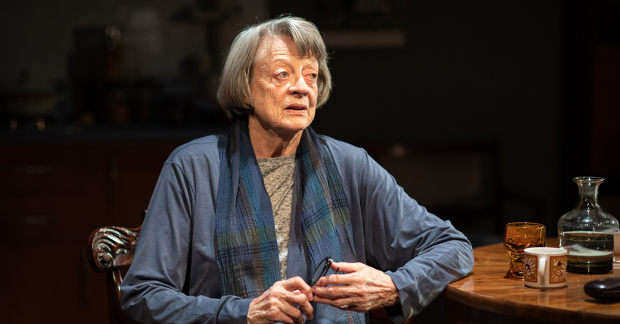
© Helen Maybanks 2019
It is an astonishing thing to see Maggie Smith hold an audience in the palm of her hand. Alone on stage for an hour and 45 minutes, never leaving her chair, speaking quietly and without any overly dramatic emphasis, she brings a woman and a world to life. You lean forward to hold the nuance and meaning of what she is saying. And what you hear is terrifying.
The woman is Brunhilde Pomsel, who died in 2017 at the age of 106. Before her death, she recorded a filmed interview with Christian Krönes and Florian Weigensamer, shot in graphically simple black and white, in which she recalled growing up in Germany between the wars and how she came to work as a secretary for the Nazi minister of propaganda, Joseph Goebbels, from 1942 until his suicide in May 1945.
Christopher Hampton has turned that testimony into a skilfully-shaped monologue, and Jonathan Kent has directed a production of absolute simplicity, dispensing with the documentary footage suggested in the text, and instead concentrating on Smith, talking confidentially to us, sometimes uncertain, sometimes funny – her first Nazi rally is "a crowd of men with BO" – sometimes regretful ("not that that excuses anything") but always persistently finding her way to her own truth.
Returning to the stage after a 12-year absence at the age of 84, Smith barely moves, but Anna Fleischle's brown, dully-domesticated set slides slowly forwards and day turns to night as she reveals the ways in which an ordinary girl from an ordinary family can slowly become trammelled in the deepest reaches of evil, without ever realising where she is residing.
Her precise, detailed memories have the advantage of being rooted in their time not in the easy comforts of hindsight. Looking back, she is clear in her condemnation of the Nazi regime. Searching for her Jewish friend, Eva Lowenthal, long after the war, she finds her name in the list of Holocaust deaths. The knowledge makes her pause. "I don't know whether God exists, probably not, but what certainly does exist is evil. And there's no justice."
Yet she doesn't allow this emotion to colour her reminiscences. She is resolutely apolitical, she insists; at one point in the early 1930s, she worked for a Jewish businessman in the morning and a Nazi in the afternoon. But she both notices and doesn't notice things. Her conversation is peppered with little bombs of shock: her brothers wearing brown shirts, her delight in voting for the first time, and her memory that "like everyone" she voted for the National Socialists, the gradual disappearance of Jewish businesses from her daily life. She is clear sighted enough to liken a Hitler rally, at which she went to cheer, to a football match though "I wasn't tactless enough to tell the poor Jews at the office I had been there."
She notes the contrast between the elegant Goebbels she knew, a man who had a manicure every day, and "the demented midget" who could rouse a crowd to a frenzy that she found frightening. But she is more excited by the amount of her wages and the kindness of Mrs Goebbels who lends her a fine wool suit, than she is ostensibly concerned by trying to help her Jewish friend when she is persecuted. Above all, she refuses to apologise for her actions, arguing that people like to think they would have done more for "the poor persecuted Jews…but they wouldn't have had."
It's this that makes her such a telling witness to horror; in the very ordinariness of her descriptions where faking casualty figures in the battles on the Russian front carry the same weight as her memories of swimming a lot in the summer when the Third Reich came to power, she throws the question of moral responsibility back out into the ether. What would you do in her situation? How much would you remember you knew? How willing would you be to take a stand? Her words have a chilling power and an uncomfortable resonance for today.
Yet this strength in the play is also its weakness. It is a monologue of detail, where great swirling events are less important than Pomsel's ability to mend a pair of laddered stockings. It is revelatory only in its ordinariness. But Smith holds us every step of the way, in her pauses, her little hesitations, and silences as much as in her speech. She has a way of rubbing her hands over her face that says as much as any words.
The aching sadness she finds as she describes how conscientiousness held her in post and as she describes her own personal trauma is all the more remarkable because Smith doesn't seem to be acting, just speaking from the heart. Her greatness illuminates, even as the darkness closes around her.



